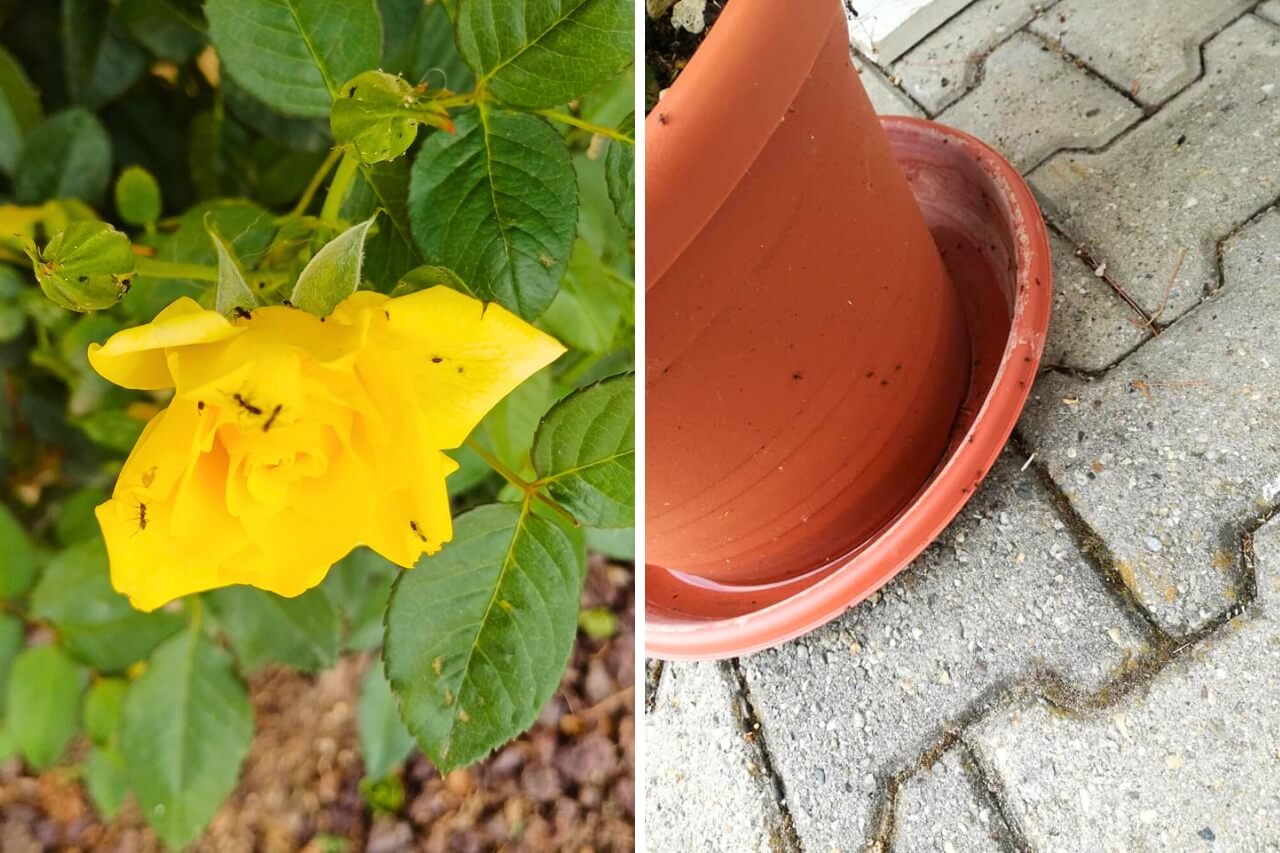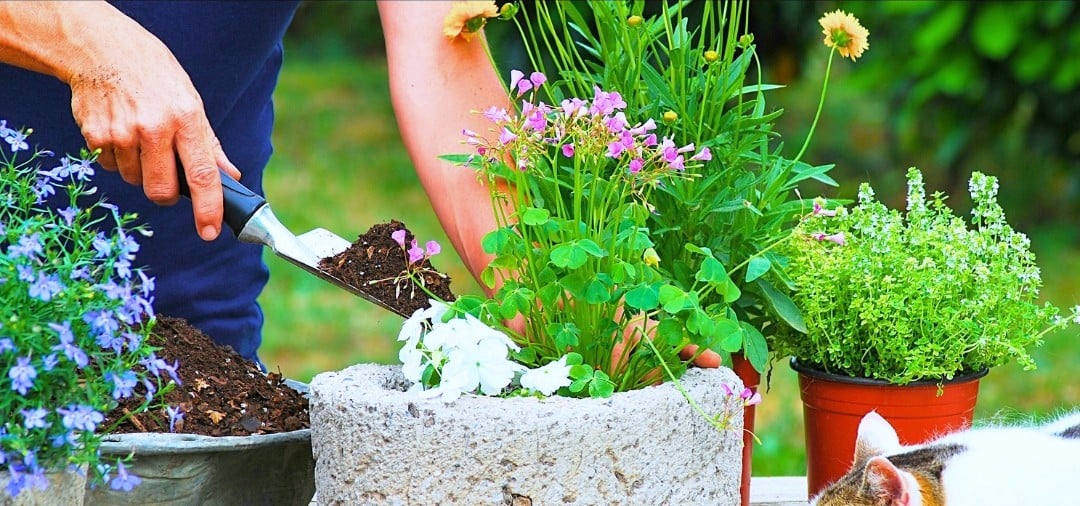A lot of gardeners face the problem of ants infesting their plants. That’s not uncommon, as you can guess, ants are among the most common insects in gardens all over the world.
The problem is that they can damage the plant and even destroy it if not handled properly. They usually cause problems to the roots, stems, and leaves and sometimes even attract other pests.
If you’re a plant lover, you’ll know how frustrating it can be to see ants crawling over your precious greens. Well, in this article I’ll explain to you why your plants attract ants and I’ll give you some natural solutions to get rid of them.
Why Are Ants Attracted by Plants
Ants are attracted to plants for several reasons. One factor is the presence of honeydew-producing pests. Such as aphids, mites, and mealybugs, which ants feed on.
Also, ants are attracted to plants because they provide shelter and food sources. The soft, moist soil around plant roots is an ideal nesting ground for ants.
Furthermore, some plants produce nectar or other sugary substances that ants find irresistible.
How do you get rid of ants on plants Naturally?
You can naturally eliminate ants on plants without using chemicals. Here are some effective methods.
Use Cinnamon Oil and Powder
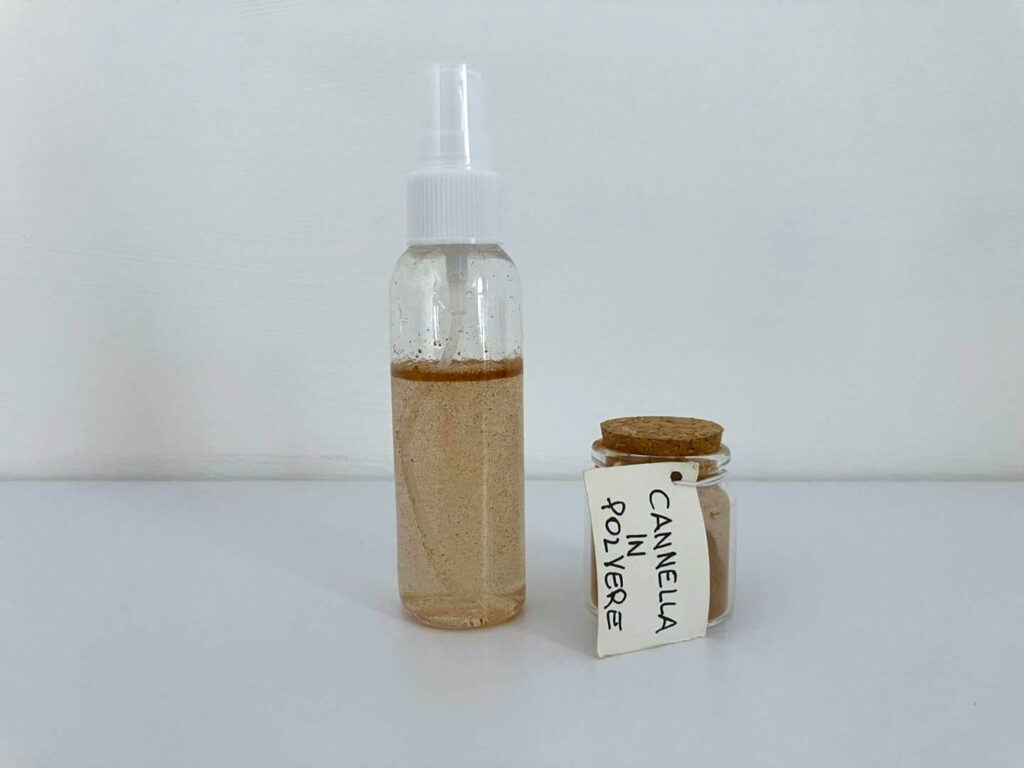
Cinnamon is a natural ant repellent. The strong scent of cinnamon oil and powder can keep the ants away from your plants.
Just mix a small quantity of cinnamon oil with water and spray it onto the affected areas. As an alternative, you can spread some cinnamon powder near the plants’ base to create a barrier that ants will avoid.
Spread Diatomaceous Earth on the Soil
Diatomaceous Earth is a fine powder that is derived from the ancient remains of diatoms. This substance, also known as DE, works by dehydrating the ants and causing their exoskeletons to break down.
It’s an effective and natural remedy for eliminating ants on plants and is very easy to use. Just apply a thin coating of diatomaceous earth on top of the soil around the plant.
Use Vinegar Solution
Vinegar is another powerful natural remedy that can help you get rid of ants on plants and I guess we all have some vinegar in our pantry.
You can create a mixture of vinegar and water in a spray bottle, a 50/50 solution is generally perfect.
Mist the affected areas, especially the ants and their entry points. The strong odor of white vinegar disrupts the ants’ scent trails and makes it difficult for them to navigate. Ultimately leading them to abandon your plants.
Spray Citrus or Homemade Ant Repellent
You can easily create another natural ant repellent by mixing citrus juice with water. Again just spray the mixture on affected plant areas and entry points if you are able to identify them. The strong scent of citrus acts as an effective deterrent.
Other homemade ingredients that usually work are baking soda, lemon juice, or cayenne pepper.
Remember to be consistent in spraying. After a few days, the smell will go away, so if there are many ants, you will need to repeat the spraying persistently.
Citrus Peels
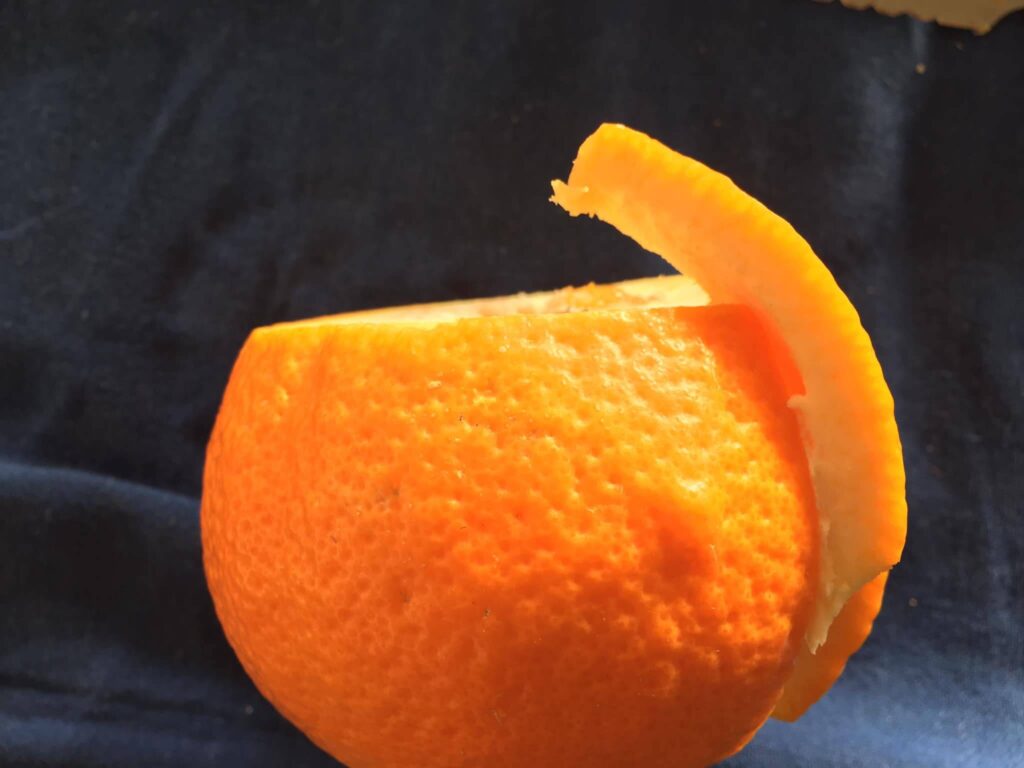
If you want the effect to last a little longer, you can directly use citrus peels.
Placing some of them near the affected plant is a natural deterrent thanks to their scent. Scatter the peels around the plant pot and soil.
Remember to replace them regularly to maintain their ant-repelling properties.
PRO TIP: Remember to repeat applications, especially after rain.
Coffee Grounds
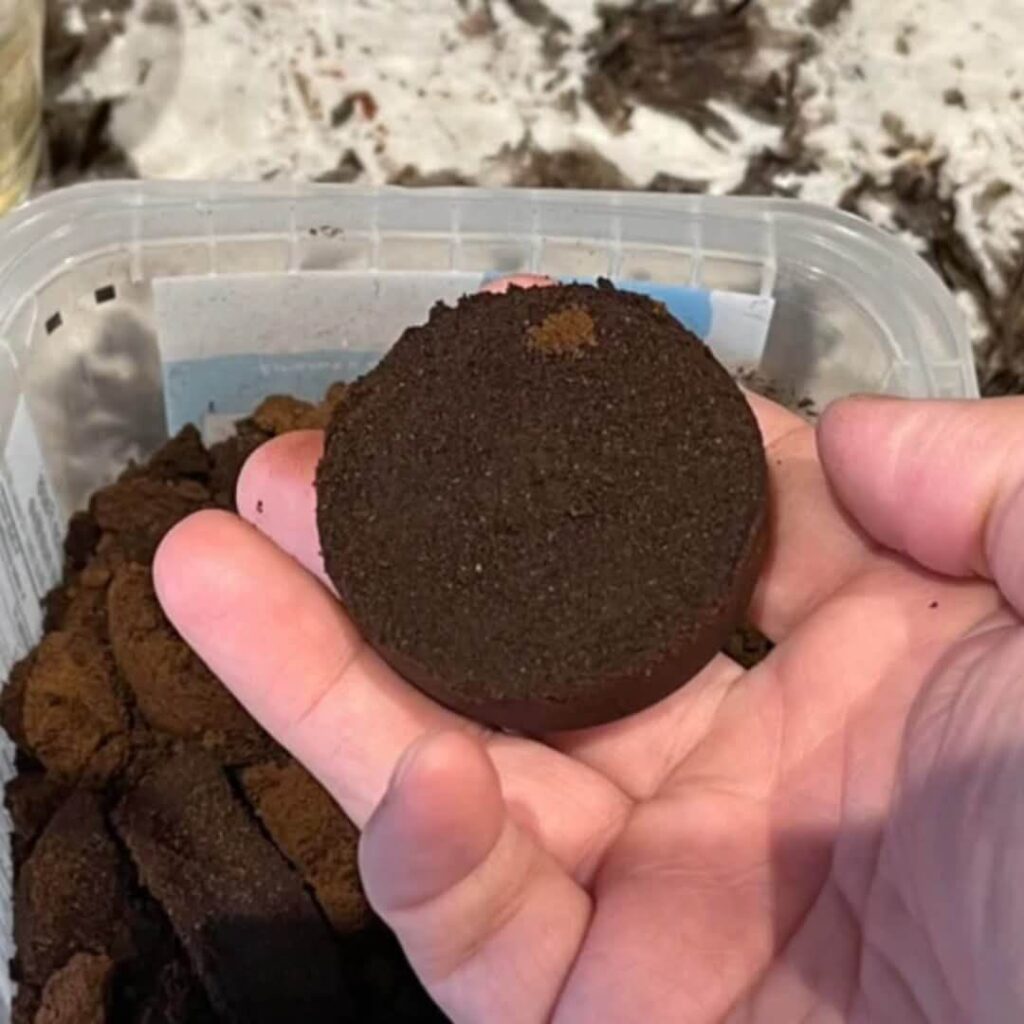
A method that I particularly like, since I make coffee every day with my mocha coffee maker, is the use of coffee grounds.
Coffee grounds repel ants from plants thanks to their strong scent and acidity. Sprinkle them around the plant’s base or on the leaves, along with potting soil, to deter ants.
Try to use them sparingly to avoid damaging roots and soil pH balance, but if used occasionally, coffee grounds also add nutrients to the soil.
What to do For Indoor Plants
The issue is a bit more complicated for the plants you have inside.
First, because you have less freedom to use products than you do outside, and second, because ants can move to other areas of the house.
The best thing to do is to figure out why you have ants in your house. If you notice where they are coming from, such as holes in the wall, window not closing perfectly, or cracks in the baseboard, the best thing to do is to close those entrances.
You should also avoid leaving crumbs or food around, so wipe down countertops, sweep floors, and dispose of garbage to cut ant activity.
Once you have taken these steps, you can use one of the methods we have seen above. Of course, calculate that inside some smells might bother you, so use something you like, such as cinnamon or citrus.
Can You Use Ant Killer Products?
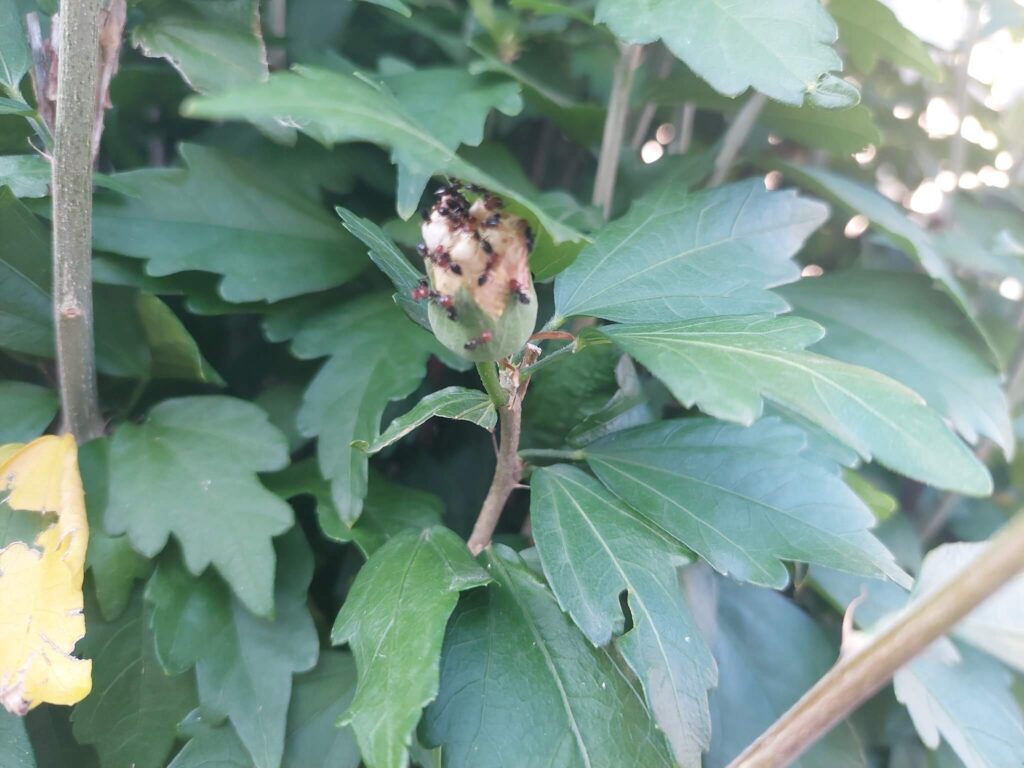
It’s usually safe to avoid ant killer products on plants, but it’s always best to check the label and opt for products that don’t harm the plant.
Some ant killers contain harmful chemicals that can damage plants or be harmful to pets so be careful. I personally prefer natural methods, so I’ve used many of the ones we have seen.
Then, of course, if it’s a real infestation and you can’t get rid of them, move to chemicals.
Can ants cause damage to plants?
Ants have both positive and negative effects on the garden. While they can harm plants, they usually don’t pose a direct danger.
Instead of directly harming plants, ants often protect and cultivate aphids, which feed on plant sap.
The ants usually defend these aphids from predators and transport them to different plant parts. That’s why you should never have plants too close together, as I mentioned in the list of common mistakes of beginning gardeners.
This relationship between ants and aphids ultimately leads to plant damage as the aphids deplete the plant’s nutrients.
Additionally, ant tunnels can disrupt root systems and affect water uptake. So, while ants may not directly harm plants, their presence can contribute to overall plant health issues.
On the positive side, ants play a natural role in pest control by feeding on the eggs and young of other insects. Their presence can help regulate pest populations, although they may not eliminate all future pests.
Additionally, ants unintentionally act as pollinators as they march from plant to plant, spreading pollen and contributing to the ecosystem.

